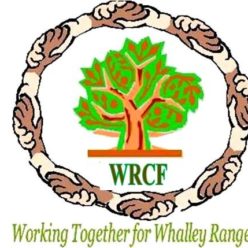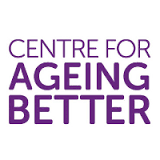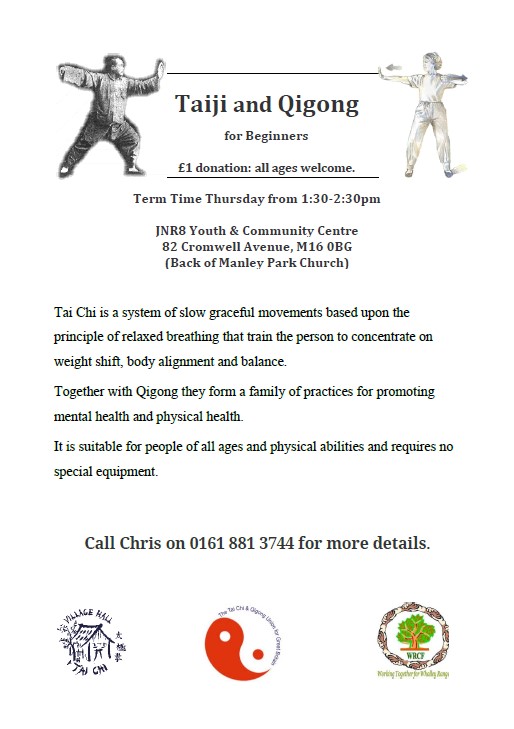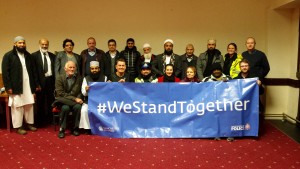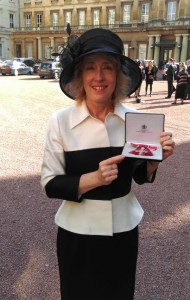The Centre for Ageing Better has joined GMCVO as a member of the Greater Manchester Ageing Hub.
The news comes as part of an announcement of a five-year partnership between the Centre for Ageing Better and the Greater Manchester Combined Authority (GMCA) to develop and share innovative approaches to tackling social, economic and health inequalities in later life.
The Greater Manchester Ageing Hub has been established by the GMCA to bring together plans to support older people (50 plus) living in Greater Manchester.
The Hub will gather best practice around achieving healthy ageing while exploring new ideas and solutions for developing age-friendly neighbourhoods across the region. Research will also be carried out over a range of issues facing older workers, especially those affected by redundancy and long-term unemployment.
Other members of Greater Manchester Ageing Hub are New Economy, Public Health England and Manchester Institute for Collaborative Research on Ageing (MICRA).
Centre for Ageing Better announces ground-breaking partnership to tackle inequalities in later life in Greater Manchester
News | Ageing Better | 18 March 2016
The Centre for Ageing Better and Greater Manchester Combined Authority (GMCA) today announce a five-year partnership to develop and share innovative approaches to tackling social, economic and health inequalities in later life.
The City of Manchester is recognised internationally for its work as an age-friendly city. Today the combined leadership of Greater Manchester commits to expanding these benefits to those living in the wider city region, positively impacting an additional 2.2 million people.
Ageing Better will capture evidence about what works to help ensure a good later life, and will work through the Greater Manchester Ageing Hub[1] to apply this to drive improvements across Greater Manchester.
Ageing Better has chosen Greater Manchester as its first locality partner because of the devolved powers[2] it holds as a city region, and its commitment to supporting ageing well in its drive to transform health and social care. Jointly, Greater Manchester and Ageing Better will share the learning and success from this partnership with other localities and with national governments in UK and abroad.
Ageing Better and GMCA share an ambitious goal to help many more people aged 50 and over stay in work and get into work.
Employment rates for people living in the North West of England are significantly worse than the English average and in Greater Manchester almost one in three of the region 50-64 year olds are not working.[3]
It is estimated that boosting the number of people in work aged 50 years and over in the region to the all-age Greater Manchester average could increase Gross Value Added[4] by as much as £901.6m.
Ageing Better and GMCA will start by developing and testing a new approach to supporting people aged 50 years and over re-enter the labour market. Being out of work in one 50s is a key risk factor for a poor later life; associated with poor health, financial insecurity and social isolation.
As well as benefiting the local economy, helping individuals to get back to work will give them a better chance of enjoying a good later life.
Ageing Better and GMCA will also work together to ensure that current and future housing meets the needs of an ageing population.
Anna Dixon, Chief Executive of the Centre for Ageing Better, said:
“Greater Manchester is in an ideal position to use its devolved powers to respond positively to its ageing population. This is a unique opportunity to demonstrate how a large scale and evidence-based approach to creating an age-friendly region can transform experiences of later life.
“Too many people currently miss out on a good later life. This not only affects individuals, but also communities and the wider economy. By working in partnership with localities we will develop and test new ways of supporting individuals, and unlock the potential within their communities.
“This is the first of our locality partners. Over the next few months we will be talking to leaders in other areas to identify places that share our ambition, our commitment to evidence and can deliver at scale.â€
Tony Lloyd, Interim Mayor for Greater Manchester said:
“I want Greater Manchester to be the UK most age-friendly city-region.
“Greater Manchester has an ambitious targets to boost employment rates amongst older people. This can help grow our economy and improve the lives of older people in our city-region.
“But I want to go further and look at how we can use the powers we now have in Greater Manchester to improve even more aspects of older people lives. That why Im delighted Greater Manchester is to be the Centre for Ageing Better first locality partner.
“By working together as part of Greater Manchester Ageing Hub we will be able to make better decisions locally that improve the lives of older people right across Greater Manchester.â€
Lord Peter Smith, lead on health and social care for the Greater Manchester Combined Authority, said:
“We know that in Greater Manchester we have an increasingly ageing population. Although this is a challenge to address some of the issues facing older people in Greater Manchester, it is also an opportunity to use their experience, wisdom and talents for the benefit of everyone.
“By tackling issues around work, social isolation, and living conditions, as well as wider attitudes and perceptions of getting older, we can have a significant impact not only physical health, but mental wellbeing too.â€
Lord Geoffrey Filkin, Chair of the Centre for Ageing Better, said:
“We are delighted to be partnering with Greater Manchester to work to improve later lives in the region. Manchester is already highly respected for its early work on age-friendly places. However the ambition and leadership of the new combined authority has greatly impressed us and we are keen to work with them to show how devolved powers over health and welfare combined with strong leadership have the potential to transform lives and places to make for better later lives.
“Our partnership with Greater Manchester will support nearly three million people living in the area. As we share what we learn together about what works, we will secure changes across the country so that more people in more places enjoy a good later life.â€
Find out more about Ageing Better approach to building strategic locality partnerships, or join the conversation on Twitter@Ageing_Better. Sign up to receive news direct to your inbox.
Ends
For further enquiries please contact Laura Hedges (laura@forster.co.uk) or Harry Day (harry@forster.co.uk) on 0207 403 2230.
Notes to editors
About the Centre for Ageing Better:
The Centre for Ageing Better is an independent charitable foundation working to help everybody enjoy a good later life. We strengthen, share and apply evidence around how people can age better. We bring fresh thinking to the challenges and opportunities that everyone faces as more people live longer. Working in partnership with people and collaborating with a diverse range of organisations, we create measureable change for the long-term. The Centre for Ageing Better is supported by funding which includes a £50 million endowment from the Big Lottery Fund.
www.ageing-better.org.uk
Big Lottery Fund
- The Big Lottery Fund supports the aspirations of people who want to make life better for their communities across the UK. We are responsible for giving out 40% of the money raised by the National Lottery and invest over £650 million a year in projects big and small in health, education, environment and charitable purposes.
- Since June 2004 we have awarded over £8 billion to projects that make a difference to people and communities in need.
- Since the National Lottery began in 1994, £34 billion has been raised and more than 450,000 grants awarded.
Greater Manchester
- In Greater Manchester almost one in three of the region 50-64 year olds are economically inactive (Annual Population Survey, Oct 2014 – Sep 2015)
- Currently, there are 98,000 Greater Manchester residents aged 50-64 in receipt of one or more of the DWP working age benefits (such as Jobseekers Allowance or Employment and Support Allowance) (Nomis, 2015)
- By 2036, it has been projected that:
- 14% of Greater Manchester population will be 75 and over, an increase of 75% from 2011
- one in three men aged 75 will be living alone
- GM will see an 85% rise in the number of people diagnosed with some form of dementia (to 61,000 people)
[1] GMCA has established a new Ageing Hub to support its activities. Ageing Better joins the hub alongside the Manchester Institute for Collaborative Research on Ageing (MICRA), New Economy, Public Health England and Greater Manchester Centre for Voluntary Organisation (GMCVO)
[2] This includes control of its £6 billion per annum health and social care budget, which has been supplemented with a £450 million transformational fund to effect a lasting step change in how services are delivered
[3] Economic activity rate for 50-64 year olds in Greater Manchester is 67.7% compared to an England average of 72.2%. (Annual Population Survey, Oct 2014 – Sep 2015)
[4] GVA measures the contribution to the economy of each individual producer, industry or sector in the UK.
